Tired of being broke in Auckland, Ruth and Bryan Tucker packed up their belongings and their two children and became digital nomads, paying off debts along the way. Next stop: home ownership in New Zealand. How did they make the dream a reality? Natalia Sutherland reports.
Ninety-five thousand dollars was the catalyst.
Ninety-five thousand dollars of accumulated debt. A financial burden that cast a shadow, an ever-growing, encroaching shadow, over Ruth and Bryan Tucker. Its presence was palpable in the minutiae of everyday life.
Could they do a dinner out, sign their children up for extracurricular activities, and how much would they spend on groceries that week? Each day, they played mental arithmetic gymnastics to make financial decisions.
“You’re counting your pennies all the time. The cost of petrol or leisure activities,” Ruth tells me, speaking from her Airbnb in Georgia.
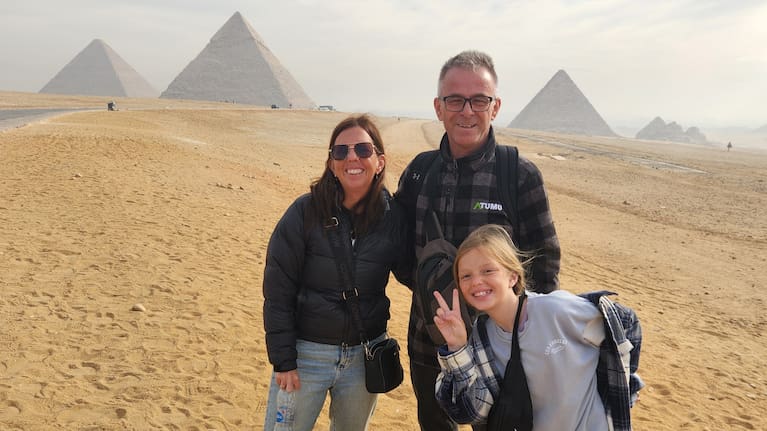
“If something wasn’t free, we just didn’t do it,” Bryan adds, sitting on the Zoom call beside her.
Now, in Eastern Europe, their lives stand in stark contrast to the debt-strained years they left behind in Auckland.
Back then, interest, tax, rent, and expenses piled on top of each other and ate away at their income, despite a healthy combined take-home pay of six figures a year.
“We felt for such a long time we were so bad with our money,” Ruth says. “We were just not getting ahead. Because when you have interest, nothing gets cleared.”
Ruth was the master of budgeting. She had no other choice. Clothes were op-shopped, reduced-to-clear supermarkets were the mainstay for groceries. With the perpetual hum of financial stress in the background, Ruth was always strategising ways for the family to live within its means, her antenna tuned to potential cost reductions. She’d often scroll property sites in the hope to find a cheaper home to rent.
“It was constantly on our minds,” she says. “We were working and trying to create as much passive income as possible. Like having homestay students.”
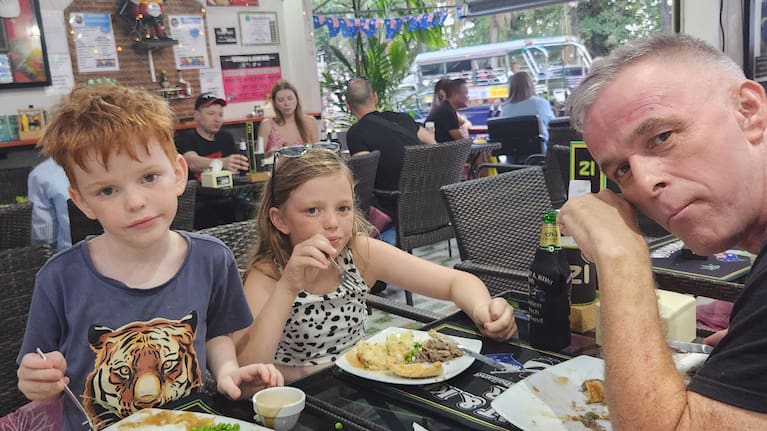
Constant money conversations circled, ideas for shrinking their swelling debt bouncing off the walls of their rental. There was the obvious solution: move out of Auckland. But sharing custody of Bryan’s teenage son meant that was out of the question.
Buying a caravan? A global pandemic quickly snuffed that idea out. With two young children, the couple had learned one key lesson from Covid: cramming a family of five into a small, confined space doesn’t work.
Over the years, the goal of becoming debt-free, escaping the rental market, and owning a home had become elusive, if not impossible.
“When you have debt hanging over you and you’re trying to make ends meet at different times, it’s just a horrible, horrible situation,” says Bryan.
But in the intrinsically Kiwi way – the Tuckers continued to search for a practical solution.
‘We realised we could work from Invercargill – or Georgia’
One idea always bubbled in the background. Something they slowly realised could fall into place, if not actually work.
Sell everything, pack their lives into backpacks, leave New Zealand and travel the world as digital nomads, maintaining their business as insurance brokers while paying off debt. It was ambitious, adventurous, if not audacious.
“We thought that we [already] work online, our business comes in via our website or an 0800 number. We could be in Christchurch or Invercargill or Georgia,” says Bryan.
They mapped out the road to their goal. To tackle their financial woes, they needed to stay one step ahead of their debt. To do that, for the first time in their marriage, they’d need disposable income.
The plan wouldn’t work in Australia or the UK; they’d need to travel to cheaper countries like Thailand or Morocco.
Through their work, the couple had often been flown to conferences in countries where they experienced firsthand how affordable travel could be while earning New Zealand dollars.
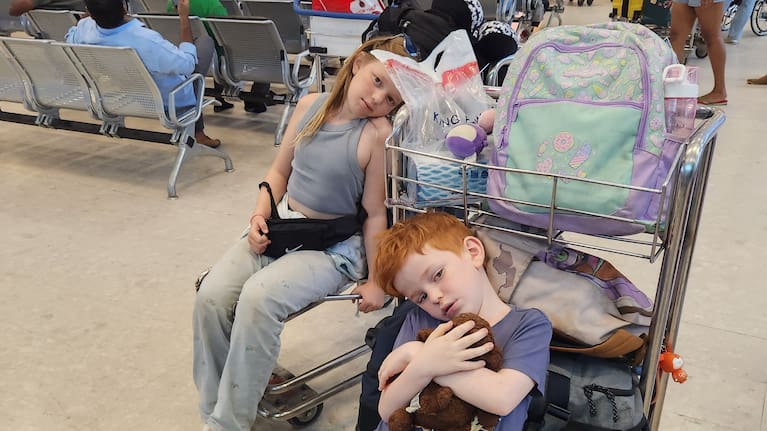
But isn’t constant travel expensive?
Once out of New Zealand, flights between Asia and Eastern European countries become cheaper, not to mention the significant drop in food prices. Short-term Airbnb rentals were cheaper per month than the $1000 per week they were paying in Auckland. Through Te Kura, NZ Correspondence School, their children, Riley, 9, and Harvey, 7, would be educated while on the road. Working in insurance, the Tuckers already had cover for health or emergencies that would arise while overseas.
Their research was meticulous, the plan was logical, the numbers lined up, and they could do it. They just couldn’t do this straight away.
Bryan and Ruth worked tirelessly to make their business fully remote, all while staying in Auckland to be close to Bryan’s son.
As they continued to work hard, budget, and downsize for the impending move, doubt seeped in.
“I didn’t know if we could actually do it,” Ruth admits.
There had been many iterations of plans to become debt-free, and she often wondered if this one was just a fantasy.
Yet, on the 18th of November, 2023, that fantasy became a reality. Selling everything, the Tuckers left New Zealand on their quest to repay their nearly $95,000 worth of debt.
Making the fantasy a reality
There is no specific data on how many New Zealanders have become digital nomads, but the trend has exploded internationally. Data from the US shows that one in ten Americans call themselves digital nomads, a 147% growth since 2019, when the term digital nomads fully became part of our lexicon. Lockdowns and a cost-of-living crisis have made the lifestyle more appealing.
It’s a luxury not afforded to many of us. The essential key to becoming a digital nomad is the ability and freedom to work remotely.
A prerequisite that isn’t lost on the Tuckers.
“We realise we are in a very privileged position,” Ruth acknowledges.
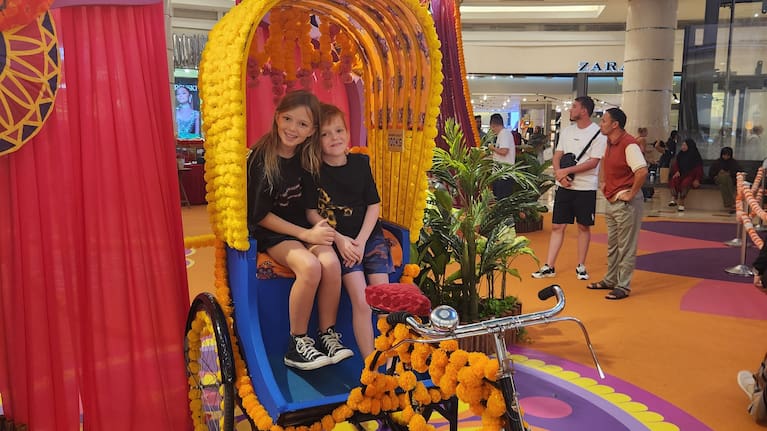
“It was something we built towards for 10 years. We didn’t just make a decision and go. We were tied to Auckland for a long time – in the best of ways.”
It’s a lifestyle that requires research, planning, and “having a sense of adventure”, she points out.
With travel or digital nomad visas, remote workers often have to stay on the move and work unsociable hours to be online when colleagues or clients back home are awake.
“It’s the tough thing about moving while working full-time in a different time zone. You’re constantly adjusting,” Bryan says.
“Sometimes you hit a sweet spot, like 12 hours behind, and other times you’re working till 5am.”
No school drop-offs or pick-ups have freed Bryan and Ruth to concentrate more on work, but it’s also come with the added responsibility of the children’s education.
“It’s me juggling the kids’ schooling with my work,” says Ruth. “The thing I miss the most is the kids going to school and the stability of that.”
Ask Ruth and Bryan if they regret taking their children out of school, and their answer is a firm no. They believe that travelling, visiting places like Egypt, and seeing history firsthand is doing wonders for their education. The care and attention from their Te Kura teachers mean they’re keeping up with the curriculum back home, says Ruth.
Missing Nana and Grandad
Bali, Vietnam, Cambodia, Thailand, Sri Lanka, the country-hopping throughout 2023 and 2024 was relentless but exhilarating, mainly because the debt was beginning to shrink. Even so, the pace at which the Tuckers travelled in the first six months was unsustainable.
“Definitely there were tears,” mainly from their eldest, Riley, Ruth explains.
Missing the proximity of classmates, friends, grandparents, and stability took its toll on them. Technology narrowed the distance between the family back home, but the loneliness of not knowing anyone was affecting the children.
“There definitely are hard moments,” Ruth admits.
Bryan and Ruth say going anywhere for less than two weeks now is not an option. “Moving fast just isn’t a good idea for our family,” says Ruth. “Feeling the rhythm of a [new] place has been really key.”
Connecting with other expats in each country has allowed the children to form solid friendships.
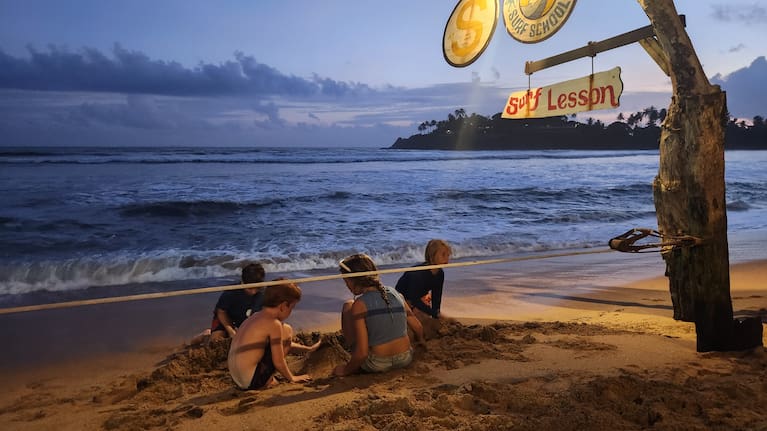
“It’s definitely our vision, our goal, and they’re coming along. It’s not something they’ve chosen; they’ve just had to come along for the ride,” Ruth acknowledges.
“We’ve had some awesome moments, and I think in retrospect it will be impactful, but at the moment they just want to see Nana and Grandad.”
Homesickness is something Ruth experiences as well. Not being able to catch up with friends in person has been difficult. “What I think I miss is hearing my friend’s cackle laugh. And those real soul connections with friends who you’ve known for a really long time and who’ve journeyed with you throughout your life.”
Ever realistic and optimistic, both know they’ll reconnect with loved ones once they’re back in New Zealand.
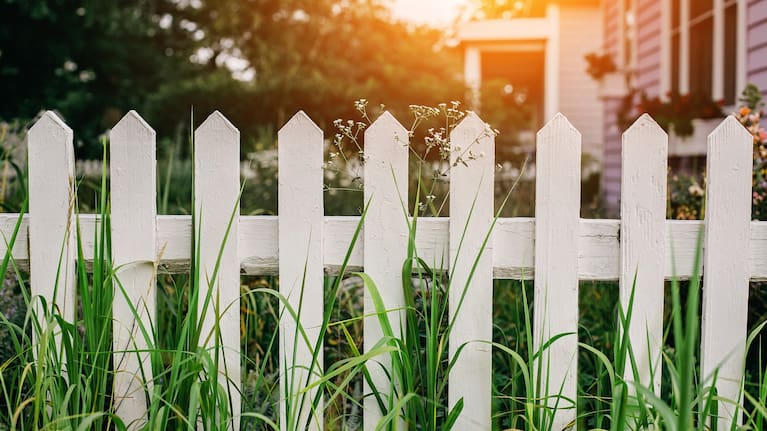
Home ownership on the horizon
Moving home is tantalisingly close. Come August, when this month’s invoices are paid, the last $26,000 of debt will be repaid, making the challenges and sacrifices over the last two years worth it.
“Our stress is so much lower — it’s astronomically lower,” Ruth says.
It’s all calculated, the invoices are due, and soon their balance will read $0 owing. “I’m already there mentally. I’ve already passed the debt,” says Ruth.
But clearing debt wasn’t the Tuckers’ only goal. Returning to New Zealand with a house deposit was always a part of the bigger picture.
“I’ve never owned my own home,” says Ruth. “So there’s the excitement of saving for that and looking for a house.”
They hope to achieve this when they come back to New Zealand in December, although Bryan admits further travel isn’t off the cards. “You know, we hope that for some years we might not even see a winter.”
The Tuckers’ tips for digital nomadism
Countries Where You Can Save Money
Saving money while travelling isn’t just possible in Southeast Asia. Other budget-friendly and safe countries with a much lower cost of living than New Zealand include:
Cost-saving accommodation choices
Cost-of-living insights
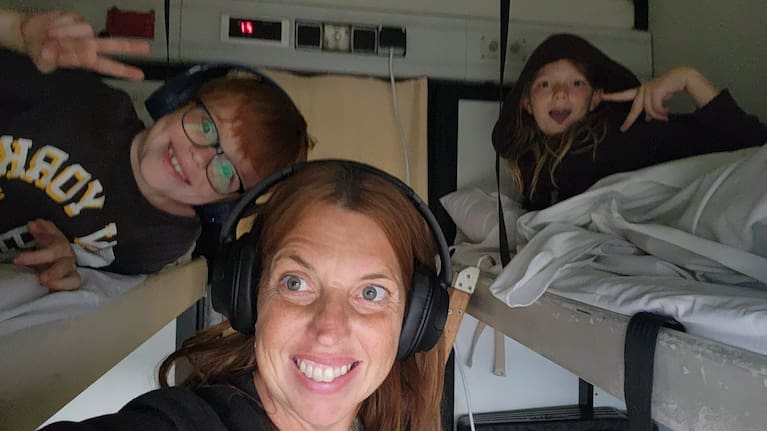
Booking accommodation and transport
Preparation for travel
You can never be fully prepared. Start downsizing once you decide to travel. The final preparations, like selling furniture and cars, often come together in the last couple of months before departure. Try not to pay to store your household items if you think you will be travelling for the long term.
Natalia Sutherland is a Kiwi journalist currently based in London.
